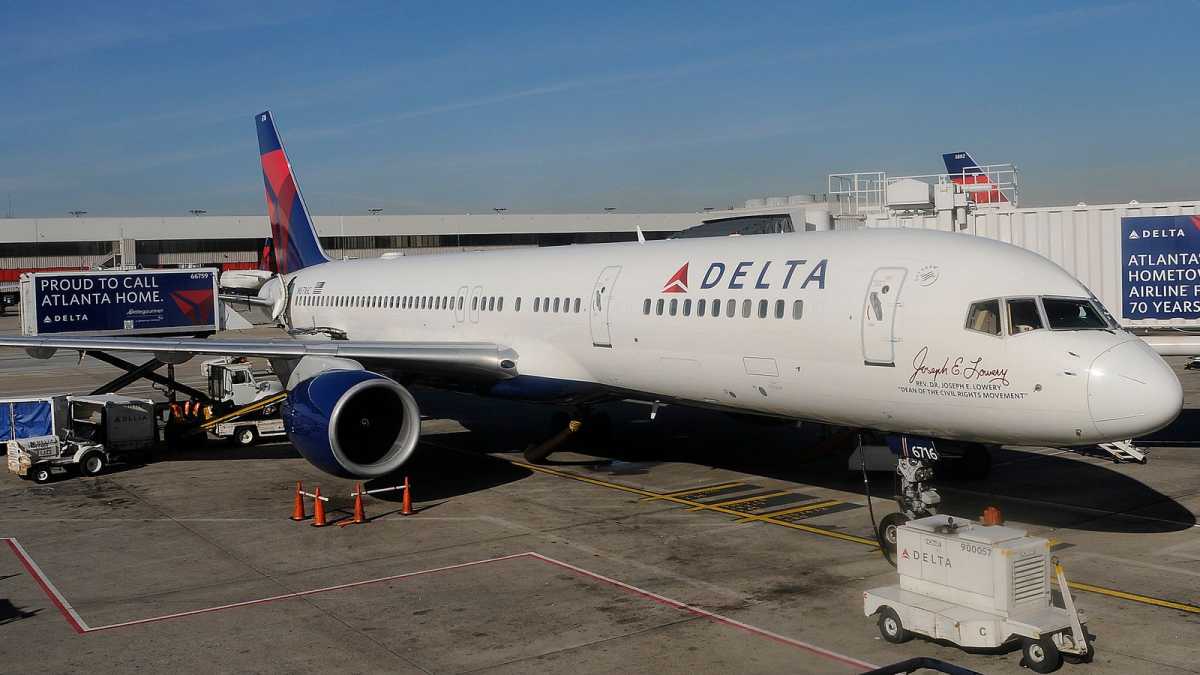News
Nose Wheel Falls off Boeing 757 Jet During Taxiing at Atlanta Airport

A nose wheel of a Boeing 757 passenger jet operated by Delta Air Lines unexpectedly detached and rolled away while the plane was taxiing on the runway at Atlanta’s Hartsfield-Jackson International Airport. The incident occurred as the aircraft, carrying 184 passengers, was preparing for a flight to Bogota, Colombia. No one was injured as a result of the incident, according to a preliminary report from the Federal Aviation Administration (FAA).
The incident came to light when the nose gear tire came loose from the landing gear, confirmed a spokesperson from Delta Air Lines. Following the incident, all passengers and their belongings were safely evacuated from the plane and transferred to another aircraft. Delta Air Lines expressed apologies to the affected customers for the inconvenience caused by the incident.
The FAA, responsible for regulating civil aviation within the United States, is currently conducting an investigation into the incident. Boeing, the manufacturer of the Boeing 757, declined to comment and directed inquiries to the airline.
Although the nose wheel incident raises concerns, it differs from the recent fuselage panel incident on a Boeing 737 MAX 9 jet, which led to increased scrutiny of Boeing and a safety investigation by the FAA. In that case, Alaska Airlines experienced a blowout, but thankfully, no serious injuries were reported.
Ben Minicucci, the CEO of Alaska Airlines, expressed his frustration with the January 5 incident, stating that it was concerning and highlighted the need for additional safety measures. Since then, there have been ongoing discussions between airlines and Boeing regarding the safety measures implemented in their aircraft.
It is worth noting that Delta Air Lines operates a diverse fleet of aircraft, including some of the oldest planes still in service in the United States. The specific plane involved in the nose wheel incident was acquired by Delta in 1992, making it approximately 32 years old. However, Delta Airlines has continuously emphasized that, provided proper maintenance is conducted, older planes do not pose a safety risk.
This incident highlights the importance of regular inspections and maintenance in ensuring the airworthiness of individual planes. While planes typically have an economic lifespan of 20 to 25 years, they can be safely operated beyond that span if properly monitored for structural stresses and maintained according to specified guidelines.
Boeing’s official position is that the responsibility for the ongoing airworthiness of individual planes lies with the operators. However, periodic requests for additional inspections or maintenance may be issued by regulators or the aircraft manufacturer.
As investigations continue, it is essential to keep in mind that safety remains a top priority in aviation. The incident serves as a reminder that even though age alone is not indicative of safety concerns, strict maintenance protocols must be followed to ensure passenger safety.












